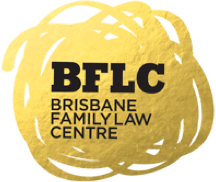If you have a pending case of domestic violence, it is important that you know how you can prove domestic violence in court.
The law in Queensland takes issues on domestic violence very seriously. As such, there are measures in place to protect those who have experienced domestic violence and ensure that perpetrators are held accountable.
In this post, we will answer to the following questions:
- What actions constitute domestic violence in Brisbane?
- What evidence do I need to prove domestic violence?
- Is a lawyer needed for a domestic violence case?
- What happens at a domestic violence hearing?
What is Domestic Violence?
The Domestic Violence and Family Violence Protection Act 2012 is the legislation that governs domestic violence in Queensland. It defines domestic violence as any behaviour by a person towards another person that is abusive, controlling or coercive and can come in the form of physcial abuse, emotional abuse and behaviour relating to sexual and financial matters and any behaviour that is threatening also. An incidence of domestic violence occurs when an individual in a close personal relationship with another behaves in an abusive way towards them.
During domestic violence proceedings, the person who has had acts of domestic violence committed against them will be known as the ‘Aggrieved’ and the person who allegedly committed those acts will be known as the ‘Respondent’
What Evidence Do I Need to Prove Domestic Violence?
Evidence is very important when it comes to a domestic violence case. Although the courts are very eager to protect the victims of domestic violence, ultimately the presence of domestic violence and then the necessity and desirability of a Protection Order must be proved at a hearing. This is not to say that help is not available until a hearing can be had as Temporary Protection Orders are available to serve this purpose.
1. You must prove that you are in a relevant relationship with the Respondent:
Before the court can consider a behaviour to be domestic violence, the victim must be in a personal relationship with the accused person. The violence must have happened in any of the following relationships:
- An intimate personal relationship between both parties (for example, spouses, de facto couples, engaged couples, etc. It also includes former partners);
- A family relationship (relatives; those connected to a person by blood or marriage);
- An unofficial or informal care relationship (for example, where the victim depends or was depending on the accused person for help with day to day living activities, but the accused is not a paid carer).
2. You must show that the accused person has performed an act of domestic violence:
An action does not have to be physical before the law considers it domestic violence. An act will be deemed domestic violence if it includes one or more of the following:
- A threat to cause physical injury;
- Actually causing bodily injury to a person;
- Making a person engage in sexual activity without their consent;
- Depriving a person of their liberty;
- Monitoring a person or stalking them unlawfully;
- Verbally abusing a person by yelling at them and calling them names;
- Threatening to commit suicide;
- Controlling a person’s use of money;
- Controlling where a person goes, what they do, who they can see, and telling them when they must come home;
- Gaslighting. An instance of this is when the defendant makes the victim feel as though they are losing their minds or that they are the cause or culprit of the domestic violence.
- Forcing a person to sign a power of attorney to them to allow them to manage the victim’s finances (without their permission and against their will).
- Threatening to disclose a person’s sexual orientation to their friends or family without their consent.
To prove that domestic violence has occurred, you must show the court that the respondent has done one or more of the behaviours outlined above.
3. The victim must show that they need protection:
You must prove that an order is necessary or desirable to protect you from future domestic violence by the respondent.
Do I need a Lawyer for a Domestic Violence Case?
Whether you have experienced of domestic violence or have been accused of domestic violence, you should consider getting the help of a lawyer.
Your lawyer will go to the court hearing for you and tell the magistrate about your situation.
A lawyer will also help with gathering evidence if the respondent opposes your application. Since they are familiar with the court system, they will also help to present the evidence in the appropriate way to prove the respondent’s guilt
What Happens at a Domestic Violence Hearing?
Most domestic violence cases do not go to trial. A lot of them are settled on a consent without admission basis. This means that the Respondent to the application concedes to the court making the order without admitting guilt.
However, the respondent may decide to challenge the order. In such cases, the matter will go to trial. The court will set a date for the hearing, and both parties will attend court to answer any questions from the other party.about their filed affidavits. These affidavits are documents containing the evidence that each party wants to rely on to support their case.
Then the magistrate will decide whether to grant the order or not.
A Domestic Violence Order does not go on the recipient’s criminal record. But if they breach the Domestic Violence Order, then the court may record a criminal conviction against them. This will go on their criminal record.
Brisbane Family Lawyers Here to Help You in Your Domestic Violence Case
If you have experienced domestic violence in Brisbane, or you know someone who has, then you need to consider whether you need a domestic violence order in order to feel safe. This order aims to limit the behaviour of the domestic violence perpetrator (the respondent).
At Brisbane Family Law Centre, our family lawyers are trustworthy and capable. We understand how difficult it can be to experience a domestically violent relationship. As such, we consider it of utmost importance to ensure that victims of domestic violence can regain their sense of safety peace of mind.
If you need efficient and compassionate domestic violence lawyers in Brisbane to help you through this time, then speak to us today.
Choosing the right lawyer for you can be difficult in the midst of domestic violence. Book a chat with our expert Brisbane domestic violence lawyers and get to know how we will get the best possible outcomes for you and your family.




